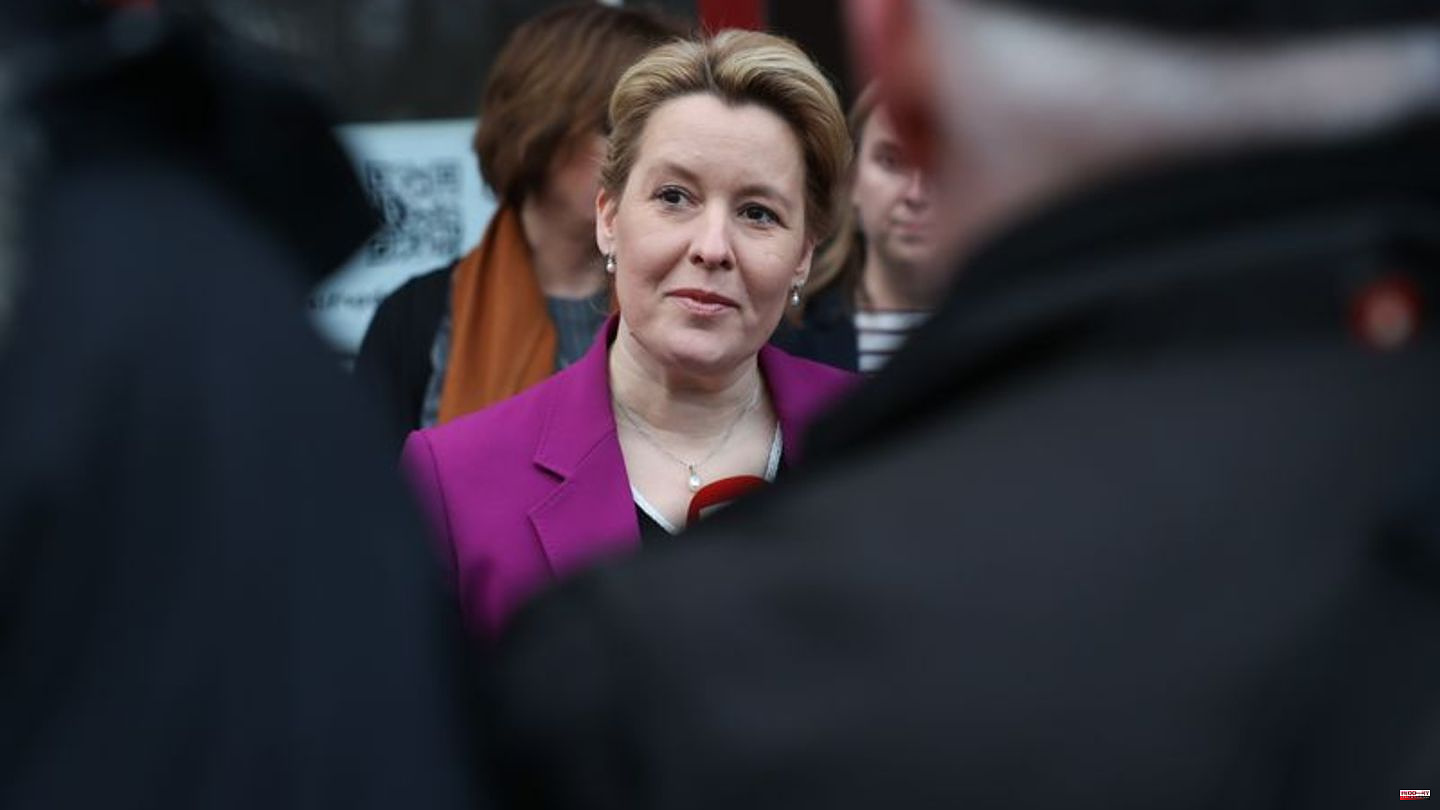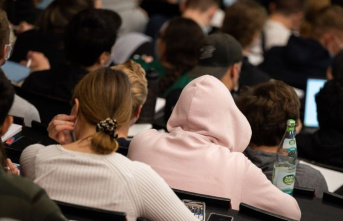The first decisions about starting coalition negotiations could be made in Berlin on Wednesday. The state board of the Berlin Social Democrats will discuss this in the afternoon. The exploratory talks between the parties have now been concluded. According to media reports, Berlin's governing mayor and SPD state chairwoman Franziska Giffey is aiming for a coalition with the CDU.
Giffey wants to propose to the SPD state board at its meeting this Wednesday that coalition negotiations with the election winner, the CDU, be started, reports the "Frankfurter Allgemeine Zeitung", "Tagesspiegel", "Bild/B.Z." and other media on Tuesday evening. So far, a red-green-red coalition has ruled in Berlin, which, in addition to a black-red and a black-green alliance, would also have a majority in the new House of Representatives.
When asked about the reports, an SPD spokesman said that the Berlin SPD's exploratory team would only submit a recommendation to the state executive to start coalition talks at the meeting on Wednesday.
The German Press Agency learned from SPD circles that the trend is towards black and red, but that is not yet fixed. According to reports, the SPD parliamentary group, which was informed on Tuesday about the status of the exploratory talks, is also tending in this direction. "Tagesspiegel" and "Bild/B.Z." reported that the SPD state leadership had informed the federal chairmen Lars Klingbeil and Saskia Esken of their intentions.
In the event of a coalition with the CDU, state chairwoman Giffey would have to give up her position as governing mayor. Even during the election campaign, she repeatedly emphasized that she had come to stay, meaning the executive chair in the Red City Hall. Most recently, she had declared that she was not attached to her position.
In a black-red coalition, the new head of government would be CDU faction leader and state leader Kai Wegner. It is conceivable that Giffey could then become a senator. The Greens and Left, with whom the SPD has governed since 2016, would then find themselves on the opposition bench.
The Left state executive wants to recommend the state party conference to start coalition negotiations with the SPD and the Greens. The decision to do so was made on Tuesday with only one dissenting vote, the party announced on Tuesday evening. The final decision will be made by the state party conference, which is scheduled for Friday.
The party is ready to continue to use the parliamentary majority for a social and ecological urban policy for Berlin, said state chairwoman Katina Schubert. A socio-ecological policy will not fail on the Berlin left. "Should the SPD actually go into a coalition with the backward-looking CDU, the city is threatened with a social and societal rollback."
The third and final exploratory talks between the CDU and the Greens also ended late Tuesday evening. After the eight-and-a-half-hour meeting, neither CDU state chief Wegner nor the Greens' top candidate Bettina Jarasch gave any indication as to who they would like to start coalition negotiations with.
Wegner said the talks were very solution-oriented. The two exploratory teams found many things in common, for example in the areas of education, health, science, but also financial policy.
Jarasch said that the Greens' exploratory team had once again experienced the CDU as a reliable and trustworthy interlocutor. "We discussed very intensively, have gone through all our issues, and have found many solutions for the good of the city." That also applies to the "big chunks". According to her, this included the question of the controversial further construction of the Autobahn 100 and how to deal with the successful referendum on the expropriation of large housing companies in Berlin. She did not give any details.
Wegner explained that the most important thing for the CDU was to take people's concerns seriously. "With the referendum, the Berliners have written something in our register that they are afraid of rising rents, that they are afraid of being pushed out." The CDU wants to work on these problems. "But again: We think the subject of expropriations is the wrong path for Berlin."
Regarding the reports on the SPD state executive board meeting on Wednesday, Jarasch said: "We were surprised by this step by the SPD leadership. It also does not correspond to the course and results of our previous talks with our current coalition partners."
According to Wegner, the CDU state executive is to be convened on Thursday to discuss the topic of coalition negotiations. The Berlin Greens had already announced that they wanted to decide at a small party conference on Tuesday whether and with whom to start coalition negotiations. Whether it stays that way or whether the CDU and SPD will agree long before that is still open.
CDU top candidate Kai Wegner is aiming for a two-party coalition with the SPD or the Greens. However, the previous coalition of SPD, Greens and Left also has a majority in the new House of Representatives. After the final result of the February 12 repeat election announced on Monday, the CDU is clearly ahead with 28.2 percent. SPD and Greens each got 18.4 percent. The Social Democrats have a tiny lead of just 53 votes.
Election results All elected MPs












